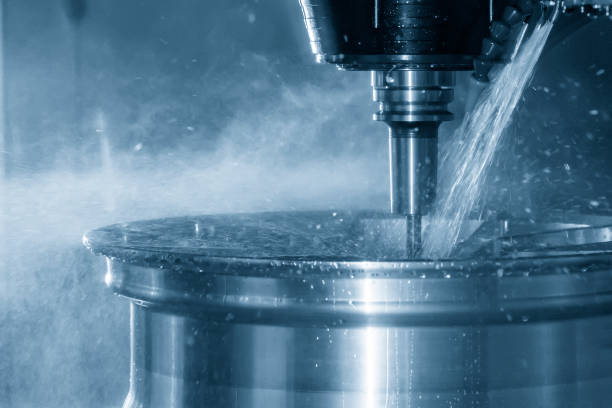Precision machining is a key aspect of modern manufacturing, especially in the production of large-scale parts. These parts are vital components in a variety of industrial applications, from aerospace and automotive to construction and energy. Meeting the demands of such applications requires the use of advanced machining technologies and techniques that can deliver high levels of accuracy, efficiency, and quality.
One of the major challenges of precision machining for large-scale parts is achieving the required level of dimensional accuracy and surface finish. These parts are often complex in shape, with intricate geometries that require precise machining to achieve their final form. This requires high-end machining equipment and software that can handle the large-scale parts and provide the necessary level of precision.
Another challenge is the need to work with a wide range of materials, from metals and alloys to composites and plastics. Each material has its own unique characteristics and properties that require different machining strategies. For example, machining metals typically involves high-speed cutting tools that can handle the high temperatures and stresses involved, while machining composites may require specialized tools that can minimize delamination and other issues.
To meet these challenges, precision machining companies invest in advanced equipment and technologies that can handle large-scale parts while delivering the required level of precision and quality. This includes CNC (computer numerical control) machines, which can automate the machining process and provide precise control over the cutting tools. It also includes advanced software that can simulate the machining process, optimize tool paths, and minimize errors and waste.

Another important factor in precision machining for large-scale parts is the need for a skilled and experienced workforce. Machining these parts requires a high degree of technical expertise and knowledge, as well as a deep understanding of the materials, tools, and processes involved. This requires ongoing training and development, as well as a commitment to quality and excellence in all aspects of the machining process.
In conclusion, precision machining for large-scale parts plays a critical role in modern manufacturing, enabling the production of vital components for a wide range of industrial applications. Meeting the demands of these applications requires advanced machining technologies and techniques, as well as a skilled and experienced workforce that can deliver the required level of precision, accuracy, and quality. With ongoing investment in these areas, precision machining companies can continue to meet the evolving needs of the industrial sector and drive innovation and growth in the years ahead.
-

- Εξατομικευμένα εξαρτήματα και εξαρτήματα χύτευσης για πιρούνι ανάρτησης ποδηλάτου για MTB
-

- High precision magnesium alloy die casting parts for automotive ignition lock
-

- OEM ζάντες από κράμα μαγνησίου χύτευσης υψηλής πίεσης για e-bike
-

- Συστατικά θιξοκαλουπώματος από κράμα μαγνησίου
-

- Factory Custom China Bmx Cycles Road Sport Kids Bicycle 12 16 18 20 Inches Cycle Mtb For Kids 6-10 Years
-

- Integrated 3-spoke wheel for MTB with CNC machining &surface treatment

 0086-750-5616188
0086-750-5616188 +86 13392089688
+86 13392089688 sales@zhongmei-tech.com
sales@zhongmei-tech.com







